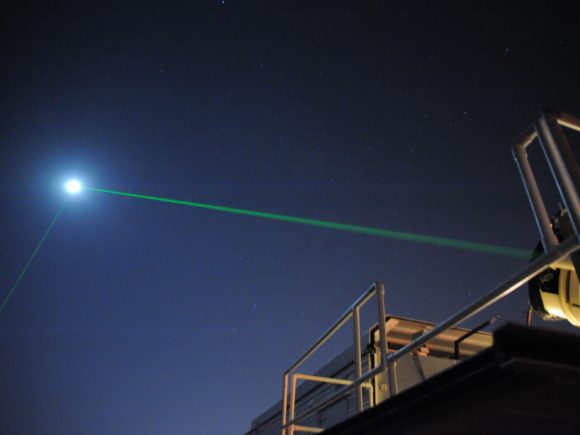 Have you ever thought about time in days, hours and seconds? Try and picture a picosecond, that is, one trillionth, or one millionth of one millionth of a second, or 0.000 000 000 001 seconds.
Have you ever thought about time in days, hours and seconds? Try and picture a picosecond, that is, one trillionth, or one millionth of one millionth of a second, or 0.000 000 000 001 seconds.
Impossible? Perhaps for us regular folk, but certainly not for Latvian Eventech, a company that turns picoseconds into profit. High precision measurement is much needed in the world of science, but to take the precision as far as to picoseconds is less than necessary for a good deal of industries. However, one field where such high accuracy of time measurement is in fact needed would be Satellite Laser Ranging (SLR).
SLR is required in nearly every International Laser Ranging Service observatory that deals with satellites orbiting the Earth. The reason why SLR is used is because distances are relatively long and satellite locations are required not only in real time but also with sub centimetre accuracy. The measurement is calculated using basics of the speed of light, which is constant and therefore translates the time lapse a laser pulse takes to hit the satellite and bounce back into a figure representing distance.
The concept behind the method is easily graspable, but the actual technology used to detect the laser pulse timespan is the result of decades of dedicated work, in this case work done by Professor Yuri Artyuhk. Artyuhk is a Senior Researcher with over 30 years of experience and his child of labour is the Event Timer A033-ET, a sophisticated precision device used in more than 50 (ILSR) centers globally (which represents about 47% of the entire market). These centers are the hotspots where all global satellite position determinations are done, in many cases by NASA scientists and engineers, so the fact that more than half of these observatories rely on Latvian technology is quite admirable.

The A033-ET is the flagship product of Latvian start up Eventech Ltd, which is a 2011 established spin-off from Riga’s Institute of Electronics and Computer Science (IECS). Despite being something of a market leader in satellite ranging, Eventech is faced with a problem: the market size for satellite ranging technology is quite small.
So basically Eventech has developed a time measurement device with an uncomparable cost/capacity rate but with little existing applications or in other words, a market size too small. But it’s not that applications don’t necessarily exist, but rather that the technology is so new that other applications aren’t known.
Not that Eventech ever had any doubts their technology lacked applications, which is why they’ve done quite a bit of research into the matter. So far they’ve found that there are several industries that would benefit from applications custom build for Eventech time measurement devices such as Gravimetry (basically the measurement of the strength of a gravitational field) and fluorescence lifetime measurements (an imaging technique for producing an image based on the differences in the exponential decay rate of the fluorescence from a fluorescent sample), and Light Detection And Ranging (LIDAR).
The idea for the market roll-out of the new applications is pretty straightforward: first extensive R&D to figure how existing technologies work in conjunction to the timer, then collaboration with experts who have the necessary market knowledge and finally some funding to push out the final product.
In the case of LIDAR, the R&D is well on its way; the Eventech LIDAR application has already been licenced as Spatial Initiatives, which is now working on a proof-of-concept and a prototype to be ready for market entrance.
Its clear that scientific startups aren’t as hypable and short-term explosive as many internet start ups are considered to be. However, the products carry potentially much larger long term benefits, as they are the first form of disruptive technology that could affect and change their respective industries entirely.
Commercialization Reactor (CR) is a Latvian organization that is fully aware of the possibilities scientific research contains. Its aim is to round up together as many science orientated entrepreneurs; investors; scientists; government bodies and connect the right people together to create commercialized science, that is, extensively researched and qualitative inventions that have larger social benefits in the form of development.
Basically CR scouts down the promising researchers, hooks them up with entrepreneurs in so called ignition events and encourages the bunch to form businesses. CR then nurses these pre-startups, in some cases gives them funding and only after 3-6 months of collaboration can the rest be classified as acceleration. The actual acceleration can be within CR or within any other acceleration programme in the world. Whichever the case, CR often helps in further fund raising and keeps seats in the board until the company is mature enough.
Eventech, like many other science start ups in the baltic region, are a more or less a direct result of CR’s support and since the measurement device start up is still in very early stage, the two need to be linked.
If you want to become CEO or part of science-based start-up, CR invites you to Riga on Nov 08-09 and to be active! All the rest is done by CR.






